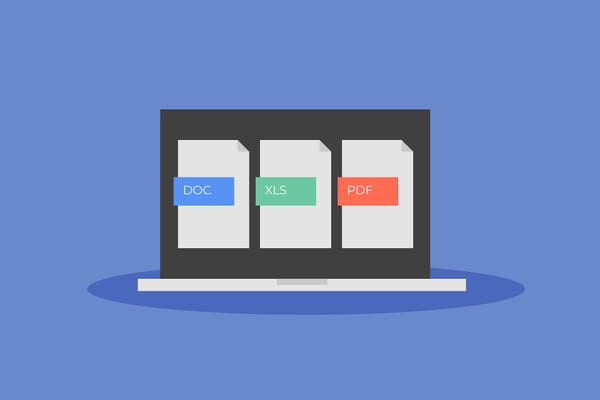How to Check If Your Business Is Affected by a Breach (And What to Do if It Is)

LinkedIn. Yahoo. Banking apps. Business software. It's difficult to stay on top of data breach news as an individual, but as a business owner, your responsibility is even bigger as you collect and store your clients' data.
The 2024 IBM report discovered that data breach costs rose by 10% over last year and the highest total ever - USD 4.88M.
That's a broad global statistic, but cyber attacks against small and medium businesses are on the rise worldwide.
How Are Small Businesses Affected by Breaches?
Immediate Impact: Fines, Fees, and Stress
If your business accepts credit or debit cards, you're probably familiar with chargebacks, which help resolve customer disputes. Unfortunately, chargebacks also highlight the financial blow of fraud. Beyond that, the immediate aftermath of a cyberattack can also severely hurt your business's finances in less obvious ways:
- Fines and penalties: Regulatory bodies and card networks may issue fines if your business experiences a data breach, especially if you handle payments. The Payment Card Industry (PCI) Security Standards Council may also impose penalties for failing to meet security standards.
- Costly investigations: After a breach, your business might have to conduct a forensic investigation to understand how the attack happened. While this can offer valuable insights to prevent future incidents, the process itself is often expensive.
- Ongoing security expenses: If customer data is compromised, you may need to offer credit monitoring, replace cards, and cover identity theft repair costs. You might also face additional compliance requirements from the PCI, adding to your financial burden.
While cybercrime makes your business a victim, you could still be held responsible for not protecting sensitive customer data. If it's found that you didn't take reasonable steps to secure information or failed to act promptly after a breach, your business could face civil liability.
Long-term Impact: Loss of Trust and Reputation
One of the most damaging long-term effects of a data breach is the loss of customer trust. People share their personal information with businesses, expecting their data will be kept safe.
For businesses, a good reputation is invaluable. But a single data breach can undo years of hard work in building customer trust.
In a Statista survey conducted in May 2024, 56% of respondents in the United States indicated that they were not likely to trust a company that had experienced data breaches with their personal data. This lack of trust was consistent across different age groups, with 76% of adults aged 45 to 54 expressing reluctance to share their personal information with a company after a data breach. Similarly, around half of users aged 25 to 44 were not at all likely to trust such companies in the future.
Related: 8 Ways to Protect Your Very Small Business Reputation Online
Moment of Truth: Are You Part of a Breach?
Many business owners remain unaware of breaches until it's too late—the sensitive information they handle may already be compromised and sold on the dark web. If you're wondering how to check if your business has been affected by a hack, you're in the right place.
You have two options:
- Check now with Bitdefender Digital Identity Protection
- Use Business Assets Exposure for ongoing monitoring and protection as part of Bitdefender Ultimate Small Business Security
1. Digital Identity Protection is simple to set up. All you need is your name, most frequently used email (or business email), and phone number. With this information, the tool scans both the Surface Web and the Dark Web to find any personal data that's been exposed.
- It tracks over 100 types of personally identifiable information (like Social Security numbers, credit card details, and home addresses) and shows everything about your online footprint.
- You'll receive notifications about data breaches, exposed personal data on the Dark Web, and even potential impersonations on social media.
- Digital Identity Protection suggests clear steps to resolve issues, sends reminders if problems persist, and offers instructions on how to remove targeted ads, export your data, or stop tracking.
2. Business Assets Exposure
Business Assets Exposure, included with Bitdefender Ultimate Small Business Security, helps business owners and security admins keep track of any breaches involving key business information. It monitors:
- Business email
- Business credit card
- Social media accounts
Once you've set up Business Assets Exposure as part of your subscription, you can review any breaches involving monitored assets. You'll be notified of breaches, the services involved, and the categories of exposed data (like emails or usernames).
For each monitored component (business email, credit card, and social media), you'll receive tailored security recommendations. Some of the suggested actions include:
- Asking employees to use Bitdefender Digital Identity Protection to monitor their business emails.
- Changing passwords on breached sites and recommending Bitdefender Password Manager for secure management (also included in Bitdefender Ultimate Small Business Security)
- Ensuring employees install Bitdefender security solution across all devices to prevent cyberattacks.
- Advising employees to use ScamCopilot for guidance on scams and prevention practices.
- Monitoring credit card transactions and working with the bank to replace compromised cards.
- Enabling two-factor authentication on breached social media accounts to prevent unauthorized access.
Related: How Remote Employees Can Cause a Data Breach of Your Small Business Data (And How to Prevent It)
Which one should you choose?
Digital Identity Protection is perfect for individual use, providing personalized monitoring and protection for your personal information online. It's an excellent choice for freelancers or entrepreneurs who need to safeguard their personal data.
Bitdefender Ultimate Small Business Security is tailored for businesses with up to 25 employees. It offers comprehensive protection for not only the business owner but also the entire team.
How to prevent a data breach
Protecting your business from data breaches might seem like a big task, but it doesn't have to be stressful. Here are some simple and practical tips to help you safeguard your information and keep your team safe:
- Secure Passwords: Take a look at your passwords - strong, unique ones are your first line of defense!
- Employee Awareness: Create a data security policy and share it with your team. Make sure everyone understands why data security matters and how they can play their part in keeping the business safe.
- Have a Response Plan: Have a data breach response plan in place to quickly detect, manage, and recover from any breaches that might occur.
- Access Restrictions: Keep sensitive information under wraps by only allowing access to those who really need it. This limits exposure and helps protect your data.
- Cybersecurity Software: Make sure you have reliable internet and cybersecurity software to guard against viruses and malware.
- Email Safety: Set clear guidelines for safe email usage. Educating your team about email safety can go a long way in preventing phishing attacks.
- Data Storage Protocols: Establish protocols for safely storing, processing, and deleting data.
What to Do If You're Involved in a Data Breach
If your small business experiences a data breach, act quickly to minimize the impact.
Here's what to do:
1. Report the Breach: Figure out what data has been compromised and report it to the relevant authorities. Depending on where you're located and your industry, you may be legally required to report data protection agencies and law enforcement.
2. Contain the Breach: Take action to isolate the affected systems to prevent any further data loss. This means disconnecting compromised systems from your network and disabling any breached accounts.
3. Notify Affected Parties: Inform your customers, employees, and anyone else impacted by the breach as soon as you can. Be open about what happened, what data was compromised, and what steps you're taking to fix the issue.
4. Enhance Security Measures: Strengthen your security to prevent future breaches. This might involve updating passwords, enabling multi-factor authentication, using VPNs, and improving your network security protocols.
5. Report Suspicious Transactions: Keep an eye on your bank accounts daily and report any suspicious transactions to your bank right away. Reconciling your accounts daily can help catch any issues early.
6. Contact Credit Agencies: Consider using a credit agency like Equifax, Experian, or TransUnion. They can alert you if any new credit accounts are opened in your name.
7. Review and Learn: Once you've addressed the immediate threat, take a moment to review the breach and understand what went wrong.
Be extra alert for potential scams, as you may be more likely to be targeted after a breach.
Protection for prevention - Bitdefender Ultimate Small Business Security
Understanding the cyberthreats consequences for a small business is an important first step on the road to safeguarding it. The next step is creating an action plan so you can protect what you've worked so hard to build.
Bitdefender Ultimate Small Business Security is exactly that – your cybersecurity plan and safety net.
Here's what it offers:
- Phishing and Email Protection: Stops phishing scams and fraudulent emails before they reach your inbox.
- Malware Defense: Keeps your Windows PCs, Macs, iPhones, Android phones, and Windows servers safe from malware, including ransomware.
- Password Manager: It helps you create strong passwords and keeps them secure.
- VPN: Provides unlimited VPN traffic to keep your remote connections safe.
- Scam Copilot: Uses AI to help your team spot scams and avoid threats while boosting your cybersecurity skills.
- Easy to Use: Features a straightforward dashboard that anyone can manage, with no IT expertise needed.
FAQs
What are the best practices to prevent a data breach in a small business?
Small businesses should implement strong password policies, restrict access to sensitive data, use cybersecurity software, and educate employees on safe email and internet practices. Regularly updating software and having a breach response plan in place are also key to keeping your business secure.
What should I do if my business experiences a data breach?
Quickly identify the compromised data, contain the breach by isolating affected systems, and notify all impacted parties. Report the breach to relevant authorities, enhance your security measures, and review the incident to prevent future breaches.
How can small businesses monitor their data for potential breaches?
Small businesses can monitor their data for potential breaches by using cybersecurity tools like Business Assets Exposure, part of Bitdefender’s Digital Identity Protection. This tool helps you track sensitive information such as emails, credit card details, and social media accounts, offering real-time alerts and recommendations if any data is exposed.
tags
Author
Cristina is a freelance writer and a mother of two living in Denmark. Her 15 years experience in communication includes developing content for tv, online, mobile apps, and a chatbot.
View all postsRight now Top posts
Outpacing Cyberthreats: Bitdefender Together with Scuderia Ferrari HP in 2025
March 12, 2025
Streamjacking Scams On YouTube Leverage CS2 Pro Player Championships to Defraud Gamers
February 20, 2025
How to Identify and Protect Yourself from Gaming Laptop Scams
February 11, 2025
Your Device ‘Fingerprint’ Will Go to Advertisers Starting February 2025
December 24, 2024
FOLLOW US ON SOCIAL MEDIA
You might also like
Bookmarks







